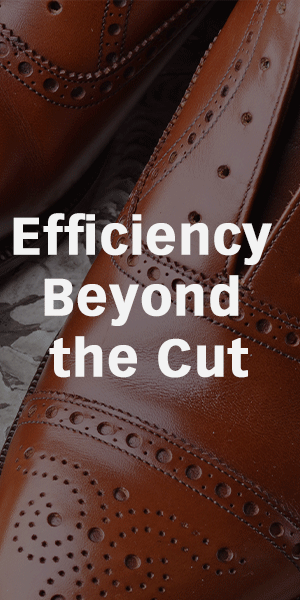Too good to keep to yourself

Large numbers of people discovered a love of running, hiking and other outdoor activities in precious moments of relief from the coronavirus lockdown. Now, the chief executive of footwear brand Icebug says outdoor footwear companies must seize the opportunity to keep new enthusiasts engaged.
The chief executive of outdoor footwear brand Icebug, David Ekelund, has highlighted five main strategies on which to base his business’s recovery from the covid-19 crisis. Mr Ekelund, who is also the current chairman of the Scandinavian Outdoor Group, says he thinks these ideas will resonate with other brands and with the whole of the outdoor industry.Covid-19 has hurt Icebug. Mr Ekelund says sales revenue for the period spanning March to May fell by 50% compared to the same months in 2019. The best-case scenario for full-year results for this year will be a fall in revenues of 20%, he says. But he remains optimistic.On the cards
Three of the five strategies he has highlighted are things that were on the cards anyway, Mr Ekelund has made clear: he wants to embrace “the upside of remote working”, put e-commerce first and make greater use of digital technology in product development. In recent comments to the organisers of the ISPO exhibition, Mr Ekelund said these were likely to make a big impact in the next two or three years anyway. “It has happened in two or three months instead,” he said.
He has hopes that efforts on the brand’s part to become better than anyone else at selling its shoes to end-consumers may have a similar impact on the business as taking wholesale distribution responsibility back inhouse in its home market did in 2006. At the time, Icebug was selling around 3,000 pairs per year in Sweden. After it began talking to retailers around the country about its shoes, sharing with them details, ideas and back-stories that no third party could possibly tell as well, this figure increased to 125,000 pairs per year.
Another of his ideas is that brands must resist the temptation of giving up on collections they had hoped to sell in 2020 for the sake of saying they have something new to offer in the seasons to come. Carry-over will be important for sustainability reasons, he believes.
Warm welcome
Beyond this, he says the outdoor industry needs to welcome newcomers. He adds: “The outdoor community has long had problems with not being perceived as very inclusive.” Now, though, large numbers of people have discovered the benefits of running, hiking and other outdoor activities, many for the first time. Countries around the world imposed strict limits on what people were allowed to do during the weeks and months of lockdown, but running, cycling and walking were allowed in many countries; these activities were encouraged in many places.People had to stay at home, whether working or not. Children all over the world ceased to be able to go to school and had to learn and play for most of the day in confined spaces. To be able to spend a short time in the fresh air exercising became a high point of the day for many. Some of those who discovered that their cities had cycle paths, riverside running tracks and walking trails could, with some encouragement, become new outdoor enthusiasts. David Ekelund hopes many of them will, for the industry’s sake as well as for theirs. He says it will be “of vital importance for the long-term relevance of our industry” to keep these people engaged.
Safe social activity
“This pandemic clearly shows us that a very good way to increase your chances of not getting ill is by staying healthy,” he explains. “In places where it’s possible to go out, there has been a huge surge in participation in outdoor activity. Partly because there’s not much else to do, partly because connecting to nature gives people comfort. If we want to keep these people hooked and have them explore how dedicated outdoor gear can improve the quality of their experience, we need to speak to them in a way they can relate to."
One idea Icebug and other brands have worked on is in arranging informal, social, not-too-competitive running, cycling and swimming events among users of their products. With tweaks now in place to make sure these gatherings can comply with social-distancing requirements, Mr Ekelund’s hope is that they might become more widespread and more popular among seasoned participants. In parallel, he wants new outdoor enthusiasts to find these events and feel welcome at them. To continue to try to lower the entry barriers is equally important, he insists.
To walk, to run, to cycle and to swim in the outdoors are good things to do, Mr Ekelund says, too good not to share.
Swedish footwear brand Icebug wants people who are new to outdoor activity to feel more welcome.
Credit: Icebug












